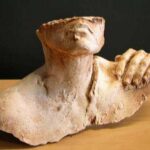Review: CAM to treat memory loss
 Herbals and other CAM are being aggressively marketed for both prophylactic and therapeutic effects in regard to memory disorders.
Herbals and other CAM are being aggressively marketed for both prophylactic and therapeutic effects in regard to memory disorders.
Researchers at Beth Israel Medical Center, in New York City, reviewed the evidence.
First, the details.
- A small number of controlled studies have explored the effectiveness of some of the more popular herbal and CAM remedies.
- Ginkgo biloba
- Phosphatidylcholine: found in eggs, soybeans, mustard, sunflower, and other foods, which is sometimes used interchangeably with “lecithin,” although they are different
- Phosphatidylserine: belongs to a special category of fat-soluble substances called phospholipids, which are essential components of cell membranes
- Omega-3 fatty acids
And, the results.
- Evidence suggests that CAM approaches are not successful in preventing or delaying cognitive decline or dementia.
- There’s little reason to prescribe these remedies for the treatment of established cognitive impairment.
- Preliminary evidence suggests that Ginkgo biloba may be useful in treating behavioral problems in demented people.
The bottom line?
The authors concluded, “It is likely that the absence of regulatory controls on the sale of herbal and CAM preparations will foster continued use of these agents and perhaps even accelerated use as the dementia epidemic increases, assuming no imminent breakthroughs in pharmacotherapy.”
9/15/11 21:04 JR